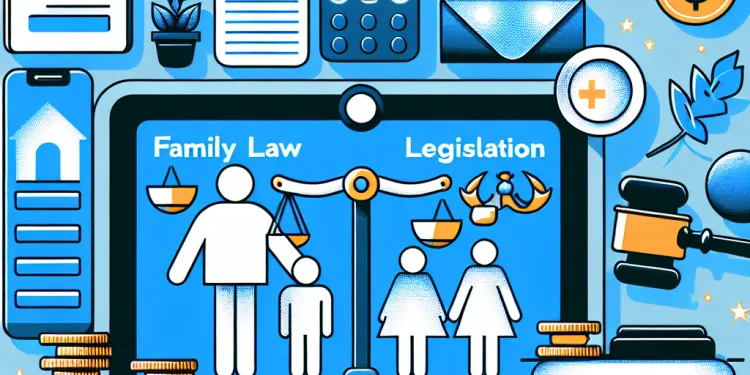
Find Help
More Items From Ergsy search
-
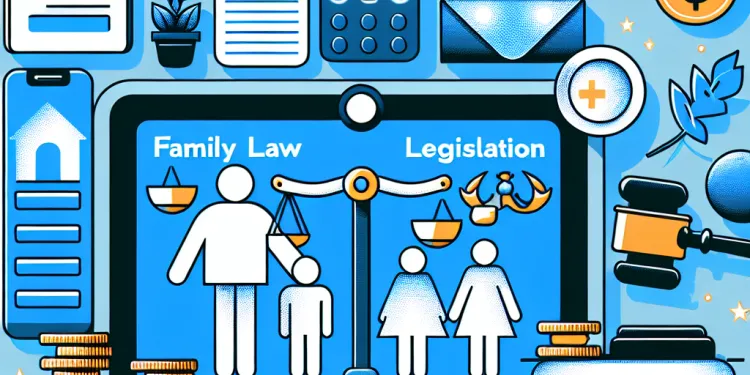
Impacts of Recent Changes to Family Law Legislation
Relevance: 100%
-

Navigating Changes in Family Law Post-Brexit
Relevance: 66%
-
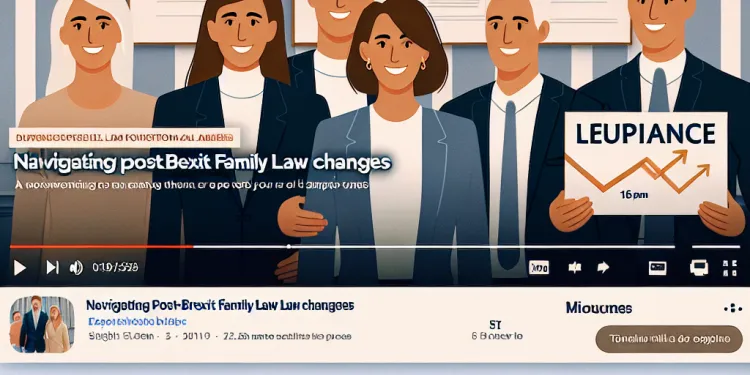
Navigating Post-Brexit Family Law Changes
Relevance: 63%
-

What are the changes to Family Court Law in 2026?
Relevance: 60%
-

Understanding the Impact of the UK's New Domestic Abuse Legislation
Relevance: 48%
-

Are there any changes to surrogacy arrangements under the 2026 family court law?
Relevance: 48%
-

Emergency Legal Guidance: Navigating the Impact of Sudden Policy Changes on Families
Relevance: 48%
-

How have child custody laws changed in 2026?
Relevance: 47%
-
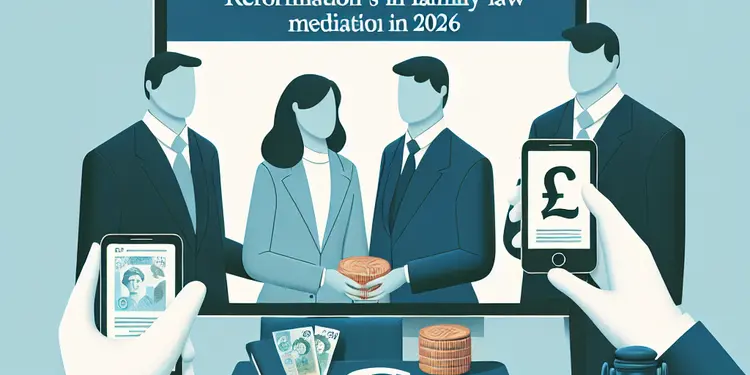
What changes have been made to mediation in family law cases in 2026?
Relevance: 47%
-

How is the Attorney General involved in the legislative process in the UK?
Relevance: 46%
-

What is the impact of the 2026 changes on grandparent visitation rights?
Relevance: 45%
-

New Asylum Seekers Legislation Sparks Nationwide Debate
Relevance: 44%
-

Magistrates in the Family Court: A Private Law Case
Relevance: 43%
-

What are the key changes to family court law in 2026?
Relevance: 42%
-

Understanding Parental Rights in Light of New UK Child Protection Legislation
Relevance: 41%
-

Have the rights of same-sex couples been affected by the 2026 family court changes?
Relevance: 40%
-

Are there specific laws governing SEND in schools?
Relevance: 39%
-

Magistrates in the Family Court: A Public Law Case
Relevance: 39%
-

Have the rules for changing a child's name in family court changed in 2026?
Relevance: 39%
-
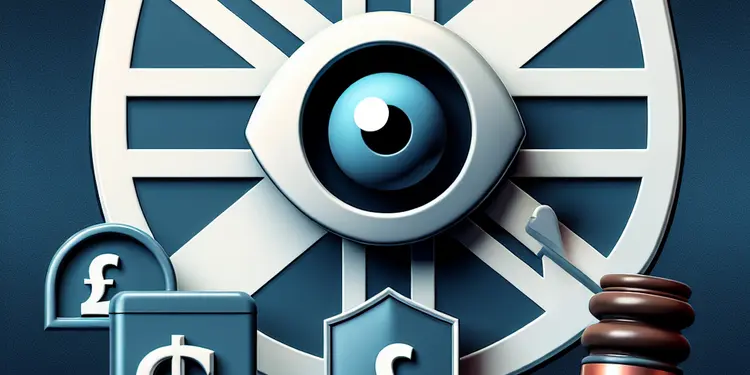
Controversy Surrounds New Surveillance Legislation as Privacy Groups Voice Concerns
Relevance: 37%
-

Child Care Proceedings | Family Law
Relevance: 37%
-

Understanding the New Domestic Abuse Laws in the UK
Relevance: 36%
-

How have prenup agreements been affected by the 2026 family court changes?
Relevance: 36%
-

Does the HMRC Employer Bulletin cover changes in employment law?
Relevance: 35%
-

Are there any changes to spousal support regulations in 2026?
Relevance: 35%
-

Impact of Rising Energy Costs on Family Budgets
Relevance: 35%
-

Impact of Rising Living Costs on Family Health
Relevance: 35%
-

How Rising Living Costs Are Impacting Family Wellbeing
Relevance: 34%
-

Do existing UK laws sufficiently protect under 16s on social media?
Relevance: 33%
-
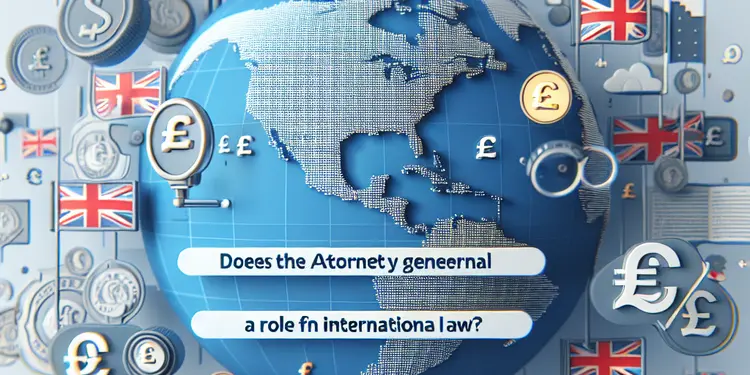
Does the Attorney General have a role in international law?
Relevance: 33%
-
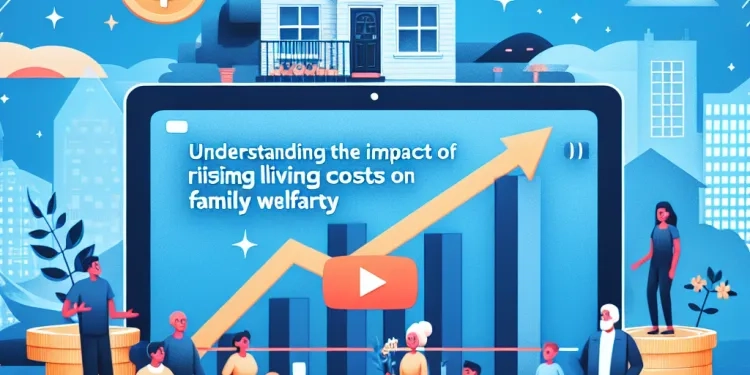
Understanding the Impact of Rising Living Costs on Family Welfare
Relevance: 33%
-

Who can be considered a domestic abuse perpetrator under the new law?
Relevance: 32%
-

Has the government introduced any new legislation to address this issue?
Relevance: 31%
-

Are there modifications to legal aid access in family court for 2026?
Relevance: 31%
-

Are there any laws against binge drinking?
Relevance: 30%
-

Will changing my surgery date impact my waiting time?
Relevance: 29%
-
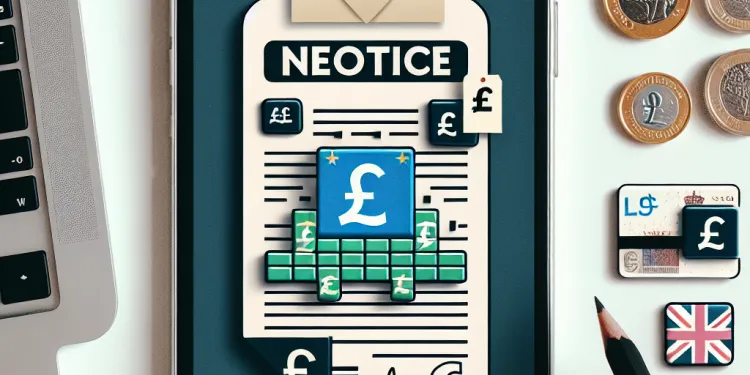
Has the notice period for eviction changed?
Relevance: 29%
-

Can lifestyle changes impact the efficacy of cancer screening?
Relevance: 28%
-

How will the cuts impact landlords?
Relevance: 28%
-

How are rent increases regulated under the new law?
Relevance: 28%
Impacts of Recent Changes to Family Law Legislation
Improved Child Welfare
Recent changes to family law legislation in the United Kingdom have significantly impacted child welfare. One of the primary focuses has been the introduction of measures geared towards the best interests of the child. Revisions to custody and visitation rights underscore the importance of maintaining stability and consistency in the child's life, often encouraging shared-parenting arrangements where appropriate. Additionally, the inclusion of the child's wishes and feelings in legal proceedings has empowered children to have their voices heard in decisions affecting their lives.
Enhanced Protections for Domestic Violence Victims
The latest legislative updates have also introduced stronger protections for victims of domestic violence. New provisions have simplified the process for obtaining protection orders and expanded the definition of domestic abuse to include psychological, emotional, and economic abuse. These changes aim to provide a more holistic approach to safety, ensuring that victims receive comprehensive support. Legal aid has been made more accessible for domestic abuse cases, enabling victims to seek justice without the barrier of prohibitive legal costs.
Streamlined Divorce Procedures
The introduction of the 'no-fault' divorce has been another significant change, intending to reduce the emotional and financial toll on families undergoing separation. By removing the necessity to assign blame for the breakdown of a marriage, couples can now opt for a mutual separation without the need for protracted court battles. This streamlined process aims to alleviate stress and enable more amicable resolutions, fostering a healthier environment for all involved, particularly children.
Increased Recognition of Modern Family Structures
Recent reforms have taken into account the evolving nature of family structures. Legislation now provides better support for cohabiting partners and same-sex couples, recognizing their legal status and rights in ways that mirror the protections afforded to married couples. This broader definition of family supports inclusivity and ensures that legal protections are evenly extended to all familial arrangements. Moreover, these changes have addressed issues related to parental responsibilities and inheritance rights for non-traditional families.
Greater Emphasis on Mediation and Alternative Dispute Resolution
There has been a significant push towards encouraging mediation and alternative dispute resolution (ADR) methods as part of the recent changes to family law. These methods offer a less adversarial approach to resolving disputes, emphasizing cooperation and mutually beneficial solutions. By fostering a more amicable negotiation process, mediation and ADR seek to reduce the impact of legal conflicts on family members, especially children. They also aim to relieve the burden on the court system, leading to faster and more efficient resolutions.
Changes to Family Law: What It Means for Families
Better Care for Children
Recently, new family law rules were made in the UK. These new rules help look after children better. The main goal is to think about what is best for the child. Changes were made to how parents share time with their children. The new rules help keep things stable and consistent for kids. They also let kids share what they want, so their opinions matter in important decisions.
More Help for People Hurt by Family Violence
The new rules also help people who have been hurt by family violence. It is now easier to get protection orders, which help keep people safe. The rules now say that family violence includes things like emotional and money problems, not just physical hurt. More people can get free legal help when they need it. This helps them get support and justice without worrying about high costs.
Easier Divorce Process
Now, getting a divorce is simpler with the new 'no-fault' divorce rule. Couples can choose to separate without having to blame each other. This makes the process less stressful and less costly. Families can find kinder ways to part, which is better for everyone, especially kids.
Supporting All Types of Families
New laws recognize different family types, like couples who live together but aren’t married, and same-sex couples. These families now have more legal support and rights, similar to married couples. The changes help with things like who takes care of children and who inherits belongings, showing that all families are important.
Peaceful Ways to Solve Family Problems
The new rules encourage families to use mediation and other peaceful ways to solve disagreements. Mediation is a way for families to talk and agree on solutions without going to court. It helps make things easier and quicker, and it is less hard on the family, especially kids. This also helps courts work faster and helps everyone find a good, happy solution.
Helpful tools: Reading out loud, using picture stories, or working with a person who can explain in easy words can also help understand these changes better.
Frequently Asked Questions
What are the recent changes to family law legislation in the UK?
Recent changes in family law legislation in the UK include revisions to divorce procedures, child custody arrangements, and financial settlements. These are designed to simplify and modernize the legal process.
When did the new family law legislation take effect?
The new family law legislation took effect in April 2022, following a series of consultations and reviews aimed at making family law more efficient and fair.
How has the divorce process changed?
The divorce process has been simplified, eliminating the need for couples to assign blame. The new 'no-fault' divorce allows couples to state irretrievable breakdown as the reason for divorce.
What impact do these changes have on child custody arrangements?
The changes emphasize the 'best interests of the child' and promote shared parenting more explicitly. Courts are now more likely to support arrangements where both parents share responsibilities.
How are financial settlements affected by the new legislation?
Financial settlements are now handled with a greater emphasis on fairness and transparency, with clearer guidelines to ensure equitable distribution of assets.
Can prenuptial agreements influence financial settlements?
Yes, prenuptial agreements have been given more weight under the new legislation, provided they are fair and both parties had independent legal advice when the agreement was made.
How have domestic abuse protections been enhanced?
Protections against domestic abuse have been strengthened, with quicker access to protective orders and stronger enforcement measures.
What are the changes to parental rights for unmarried couples?
Unmarried couples now have more recognition under the law, with provisions that better protect their parental rights and responsibilities, ensuring fair arrangements for their children.
Has the mediation process changed?
The mediation process has been encouraged further, with an emphasis on resolving disputes outside of court wherever possible. Mediation information and assessment meetings (MIAMs) are now a mandatory step before court proceedings.
Are there new provisions for international family law cases?
Yes, new provisions address international family law cases, especially related to child abduction and cross-border custody disputes, ensuring better cooperation with international courts.
How does the new legislation impact same-sex couples?
The new legislation offers the same legal rights and protections to same-sex couples as it does to heterosexual couples, ensuring equality in all family law matters.
What support is available for families going through separation or divorce?
The government and various organizations provide counseling, legal aid, and mediation services to support families through the separation or divorce process.
Are grandparents' rights affected by these changes?
Grandparents' rights to maintain contact with their grandchildren are recognized more explicitly, though court approval is required in some cases.
How do these changes impact spousal maintenance?
Spousal maintenance orders are now more flexible, with courts considering the length of the marriage, the disparity in earning capacity, and the needs of each party.
Is there any change in the enforcement of child support payments?
Yes, child support enforcement has been tightened, with new measures ensuring timely and full payment of child support to improve the welfare of children.
What are the new family law rules in the UK?
Family law rules in the UK have changed. Here is how to understand them:
- Use simple words to explain the rules.
- Ask someone you trust to help you understand.
- Use pictures or drawings to see what has changed.
- Use easy-to-read guides for more help.
New rules in UK family law are here. They change how people get divorced, decide who looks after children, and share money when they split up. These changes make things easier and more modern.
When did the new family law rules start?
The new family law rules started at a certain time. To find out when, you can:
- Check a calendar with important dates.
- Look for news about the new rules.
- Ask a helper or friend for information.
If you need help, you can:
- Use a calendar app to remind you.
- Watch videos explaining the new rules.
The new family law rules started in April 2022. These changes were made after talking to many people and checking how things worked. The aim is to make family law better and fairer.
Sometimes reading can be hard. It might help to use tools like audiobooks or screen readers. You can also ask someone you trust to help read with you. Taking breaks and using a ruler or finger to guide you can also make reading easier.
How is getting a divorce different now?
Getting a divorce is when two married people decide not to be married anymore.
The way people get a divorce has changed. It is not the same as it used to be.
Now, there are new rules and steps that people need to follow to get a divorce.
Here are some tips that might help:
- Ask a friend or family member for help if you find it hard to understand.
- Use simple words to talk about it.
- Draw pictures or use diagrams to see each step.
- Use tools like speech-to-text if you find writing hard.
Getting a divorce is now easier. You don't have to say it's anyone's fault. Now, you can just say that the marriage isn't working anymore.
How do these changes affect where children live and who takes care of them?
The rules now focus on what is best for the child. They want both parents to take care of the child together. Courts will help both parents share the work of looking after their child.
How do the new rules change money agreements?
The government made new rules. These rules help decide who gets what money when two people split up.
The new rules might make it fairer. They can change how people share money, houses, or things they own together.
It's important to know about these rules if you are splitting up with someone.
If you find it hard to understand, you can ask someone you trust to help you. You can use pictures or charts to make it clearer.
Now, when people divide money and things, they focus on being fair and clear. There are simple rules to help share everything equally.
Do prenups change money decisions in divorces?
Yes, prenuptial agreements are now more important because of new rules. They must be fair, and both people need to talk to their own lawyers before making the agreement.
What new ways help keep people safe from domestic abuse?
We have made it easier and faster for people to get help if they are hurt or scared at home. It is now quicker to get special orders to keep them safe, and these rules are made stronger too.
How do the rules change for parents who are not married?
Unmarried couples are now more recognized by the law. The rules are better at protecting their rights and duties as parents. This helps to make sure their children are treated fairly.
Did the way people help others talk about problems change?
The mediation process is being used more. This means fixing problems without going to court. Before going to court, you must have a meeting called a Mediation Information and Assessment Meeting (MIAM).
Are there new rules for family law cases in other countries?
Yes, there are new rules to help with family law cases between different countries. These rules are important for cases like child abduction and custody fights that go across borders. They help courts in different countries work together better.
What does the new law mean for same-sex couples?
This question is asking what the new law does for same-sex couples. It means we want to know how the law changes things for these couples.
Some ways to make reading easier are:
- Use simple words.
- Read slowly.
- Ask someone to explain if you need help.
- Use pictures or drawings to understand better.
The new law gives same-sex couples the same rights and protections as opposite-sex couples. This means all couples are treated equally by family laws.
What help can families get when parents split up?
When parents decide not to live together anymore, families might need help. Here are some ways you can get support:
- Talking to a Counselor: A counselor is someone you can talk to about your feelings. They can help you understand what is happening.
- Support Groups: These are groups where people meet and talk about their experiences. It helps to know that you are not alone.
- Family Meetings: Families can have meetings to talk about changes and listen to each other’s feelings.
- Hotlines: You can call special phone numbers to talk to someone who can help.
- Books and Websites: There are books and websites with stories and tips about families splitting up. They can help you feel better.
It is okay to ask for help when things change at home. Talking to someone you trust can make a big difference.
The government and many helpful groups give support to families who are going through separation or divorce. They can talk with you, help you with legal questions, and help families work things out.
Do these changes change what grandparents can do?
Changes might make it different for what grandparents can do or not do with their family. If you are a grandparent, you can ask someone to help you understand these changes. You can talk to a legal advisor or someone you trust. Reading with a family member might help too. Remember, it is okay to ask questions if you are unsure.
Grandparents can stay in touch with their grandchildren. This right is clear, but sometimes they need a judge to say it's okay.
How do these changes affect money given to a spouse?
This question is about how changes can change the money that one partner gives to another partner after they split up. It's called "spouse money" or "spousal maintenance." Below are some tips to help understand this question:
- Break it down: Read one small part at a time.
- Ask for help: You can ask someone you trust to explain it to you.
- Use pictures: Drawing or seeing pictures can help you understand.
- Use a dictionary: Look up words you don't know.
Spousal maintenance orders are now more flexible. This means they can change. The courts will think about:
1. How long the marriage lasted.
2. How much money each person can earn.
3. What each person needs.
If you find reading hard, you can use text-to-speech tools. They can read the text out loud for you. You can also ask someone to help explain things. Remember to take your time and ask questions if you need to.
Has the way child support is collected changed?
Here is a simple way to understand and answer the question: - Child support is money a parent gives to help care for their child. - Sometimes, rules about collecting this money can change. - A parent may wonder if these rules have changed recently. If you find this hard to understand, you can: - Ask a friend or adult to explain it to you. - Use a tool that reads text out loud for you. - Look for videos online that talk about child support.Yes, there are new rules to make sure parents pay child support on time. This helps take care of children and makes their lives better.
Useful Links
This website offers general information and is not a substitute for professional advice.
Always seek guidance from qualified professionals.
If you have any medical concerns or need urgent help, contact a healthcare professional or emergency services immediately.
- Ergsy carfully checks the information in the videos we provide here.
- Videos shown by Youtube after a video has completed, have NOT been reviewed by ERGSY.
- To view, click the arrow in centre of video.
- Most of the videos you find here will have subtitles and/or closed captions available.
- You may need to turn these on, and choose your preferred language.
- Go to the video you'd like to watch.
- If closed captions (CC) are available, settings will be visible on the bottom right of the video player.
- To turn on Captions, click settings .
- To turn off Captions, click settings again.
More Items From Ergsy search
-

Impacts of Recent Changes to Family Law Legislation
Relevance: 100%
-

Navigating Changes in Family Law Post-Brexit
Relevance: 66%
-

Navigating Post-Brexit Family Law Changes
Relevance: 63%
-

What are the changes to Family Court Law in 2026?
Relevance: 60%
-

Understanding the Impact of the UK's New Domestic Abuse Legislation
Relevance: 48%
-

Are there any changes to surrogacy arrangements under the 2026 family court law?
Relevance: 48%
-

Emergency Legal Guidance: Navigating the Impact of Sudden Policy Changes on Families
Relevance: 48%
-

How have child custody laws changed in 2026?
Relevance: 47%
-

What changes have been made to mediation in family law cases in 2026?
Relevance: 47%
-

How is the Attorney General involved in the legislative process in the UK?
Relevance: 46%
-

What is the impact of the 2026 changes on grandparent visitation rights?
Relevance: 45%
-

New Asylum Seekers Legislation Sparks Nationwide Debate
Relevance: 44%
-

Magistrates in the Family Court: A Private Law Case
Relevance: 43%
-

What are the key changes to family court law in 2026?
Relevance: 42%
-

Understanding Parental Rights in Light of New UK Child Protection Legislation
Relevance: 41%
-

Have the rights of same-sex couples been affected by the 2026 family court changes?
Relevance: 40%
-

Are there specific laws governing SEND in schools?
Relevance: 39%
-

Magistrates in the Family Court: A Public Law Case
Relevance: 39%
-

Have the rules for changing a child's name in family court changed in 2026?
Relevance: 39%
-

Controversy Surrounds New Surveillance Legislation as Privacy Groups Voice Concerns
Relevance: 37%
-

Child Care Proceedings | Family Law
Relevance: 37%
-

Understanding the New Domestic Abuse Laws in the UK
Relevance: 36%
-

How have prenup agreements been affected by the 2026 family court changes?
Relevance: 36%
-

Does the HMRC Employer Bulletin cover changes in employment law?
Relevance: 35%
-

Are there any changes to spousal support regulations in 2026?
Relevance: 35%
-

Impact of Rising Energy Costs on Family Budgets
Relevance: 35%
-

Impact of Rising Living Costs on Family Health
Relevance: 35%
-

How Rising Living Costs Are Impacting Family Wellbeing
Relevance: 34%
-

Do existing UK laws sufficiently protect under 16s on social media?
Relevance: 33%
-

Does the Attorney General have a role in international law?
Relevance: 33%
-

Understanding the Impact of Rising Living Costs on Family Welfare
Relevance: 33%
-

Who can be considered a domestic abuse perpetrator under the new law?
Relevance: 32%
-

Has the government introduced any new legislation to address this issue?
Relevance: 31%
-

Are there modifications to legal aid access in family court for 2026?
Relevance: 31%
-

Are there any laws against binge drinking?
Relevance: 30%
-

Will changing my surgery date impact my waiting time?
Relevance: 29%
-

Has the notice period for eviction changed?
Relevance: 29%
-

Can lifestyle changes impact the efficacy of cancer screening?
Relevance: 28%
-

How will the cuts impact landlords?
Relevance: 28%
-

How are rent increases regulated under the new law?
Relevance: 28%


